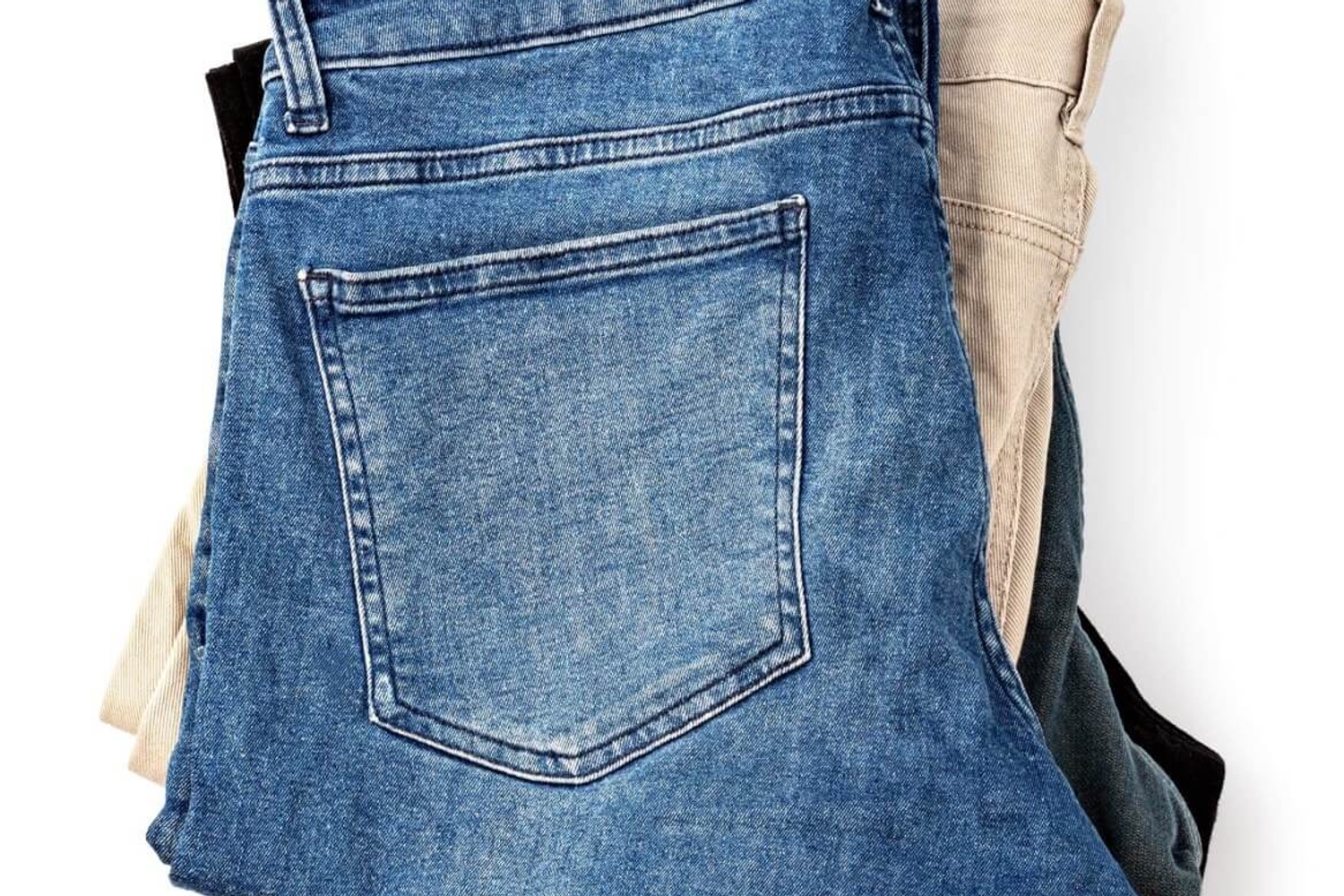Trousers & Jeans
Is your trouser draw responsible for tonnes of waste? Did you jeans generate kilos of carbon? Learn about the more sustainable options
View all products

Why Swap
- A huge amount of waste comes from our fast fashion obsession. Washing, solvents, and dyes used in manufacturing are responsible for one-fifth of industrial water pollution, and materials like denim can have a huge footprint. According to Levis Straus, 3,781 litres of water are used to manufacture one pair of 501® jeans and 33.4kg of CO2 is created through its lifetime.
- Cheap synthetic fabrics like polyester, nylon and acrylic are made from petrochemicals, driving demand for fossil-fuels. These plastic-fibres can shed up to 700,000 microplastics whenever they're washed and will take hundreds of years to fully break down
- The fashion industry is rife with workers' rights issues, with garment workers in countries like China and Indonesia working in poor conditions and receiving very little pay for their work. Brands like Fashion Nova, SHEIN, Revolve, and Romwe all score less than 10% on Fashion Revolution's Fashion Transparency Index
The Alternatives
On average we own between six and seven pairs of jeans – and that doesn't take into account other types of trousers! As with all clothing, there are a couple of things to consider before choosing a new pair of trousers or jeans. We'd always recommend buying second-hand since it reduces your impact while keeping existing clothes in circulation. When you do buy new, always aim to buy clothes that will last. Poorly-made fast fashion garments created from cheap synthetic fibres have a tendency to break or become warped and misshapen. Opting for natural fibres not only means you're reducing the amount of plastics in your wardrobe, but also that your trousers and jeans keep cutting a stylish figure for longer.
Recycled Trousers & Jeans
There are some great recycled materials which, while not always plastic-free, reduce existing waste. ECONYL® is made entirely from ocean and landfill waste, such as industrial plastic, clothes manufacturing, old carpets and even 'ghost nets', while lyocell (sometimes known as Tencel®) is made from wood pulp. Lyocell has the potential to use up to 50% less water than cotton and utilises a closed-loop system which reuses nearly 100% of the chemicals used in the solvent-spinning process.
Plastic-free
Recycled Materials
Organic
Natural Trousers & Jeans
Natural fibres like cotton, linen, hemp and bamboo have various pros and cons, but are all biodegradable and don't create demand for synthetic oil-derived plastics. Cotton biodegrades easily and can be spun into a durable fabric without requiring a complex chemical process, but is a very thirsty crop. Linen can be more efficient in land and water use, but takes a lot of time to process and is quite a delicate fabric. Hemp can be most efficient when it comes to land and water use, but can take more time to wear in. Bamboo grows quickly and without the need for pesticides, creating a hard wearing fabric but requiring a very intense chemical process to produce.
Plastic-free
Recycled Materials
Organic
Organic Trousers & Jeans
Organic natural fibres (look out for our organic accreditation) like organic cotton are grown without the use of harmful pesticides and chemical fertiliser. Organic products have to meet a high standard, with accreditations like Soil Association and Global Organic Textiles Standard (GOTS) looking at every part of the growing and manufacturing process.
Plastic-free
Recycled Materials
Organic



